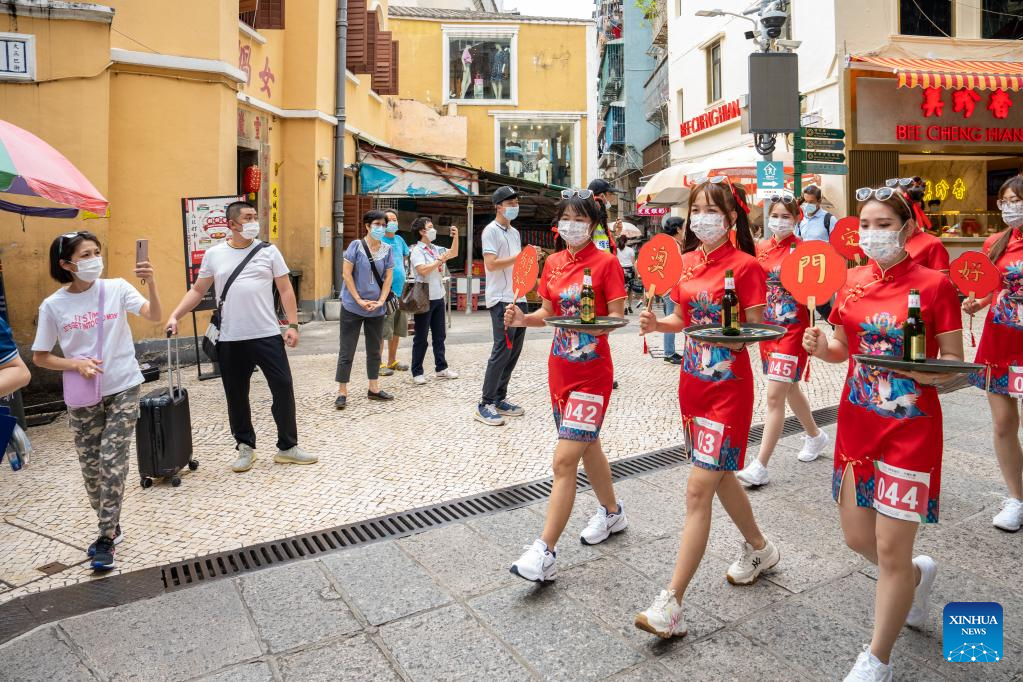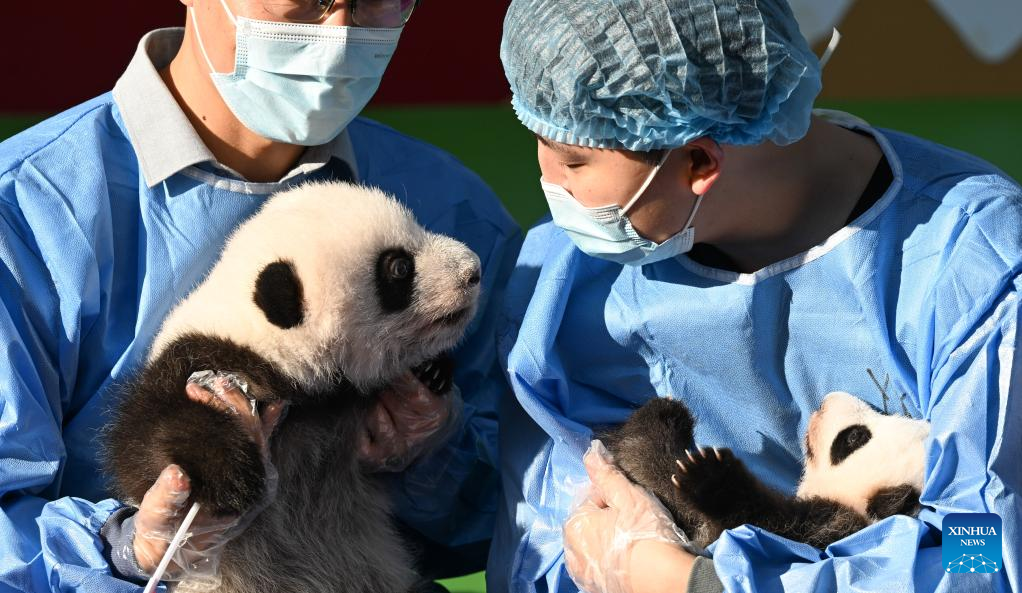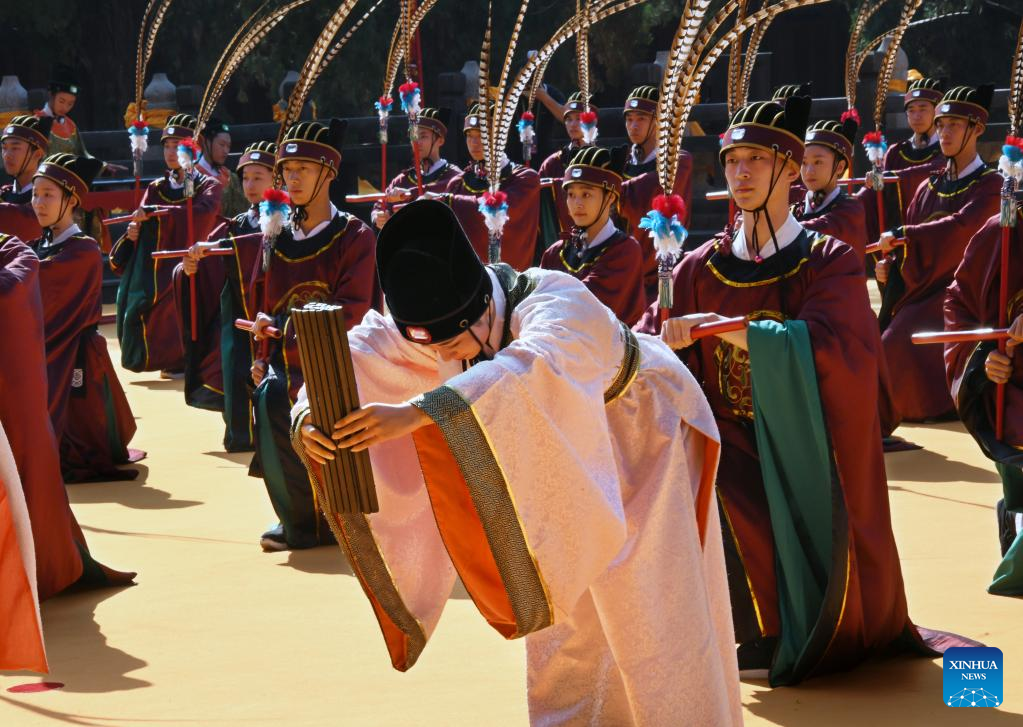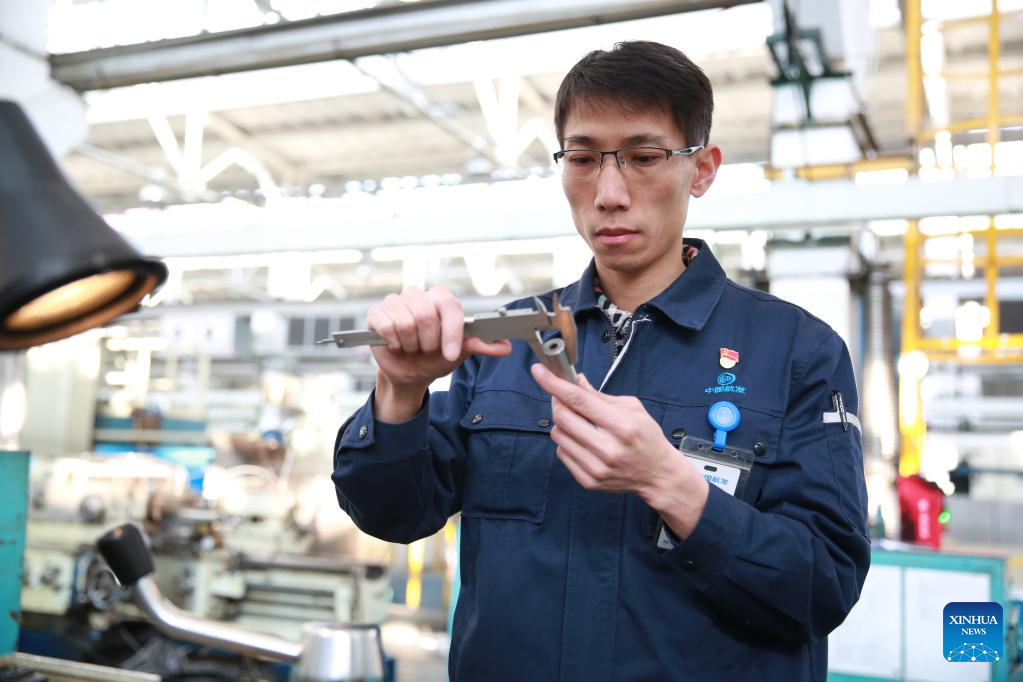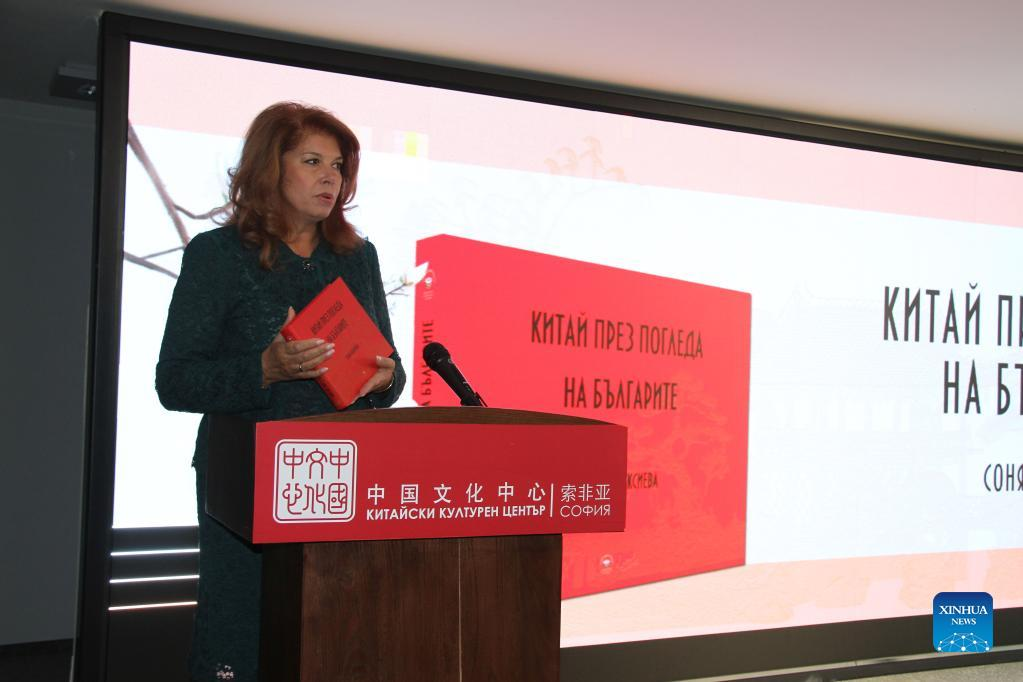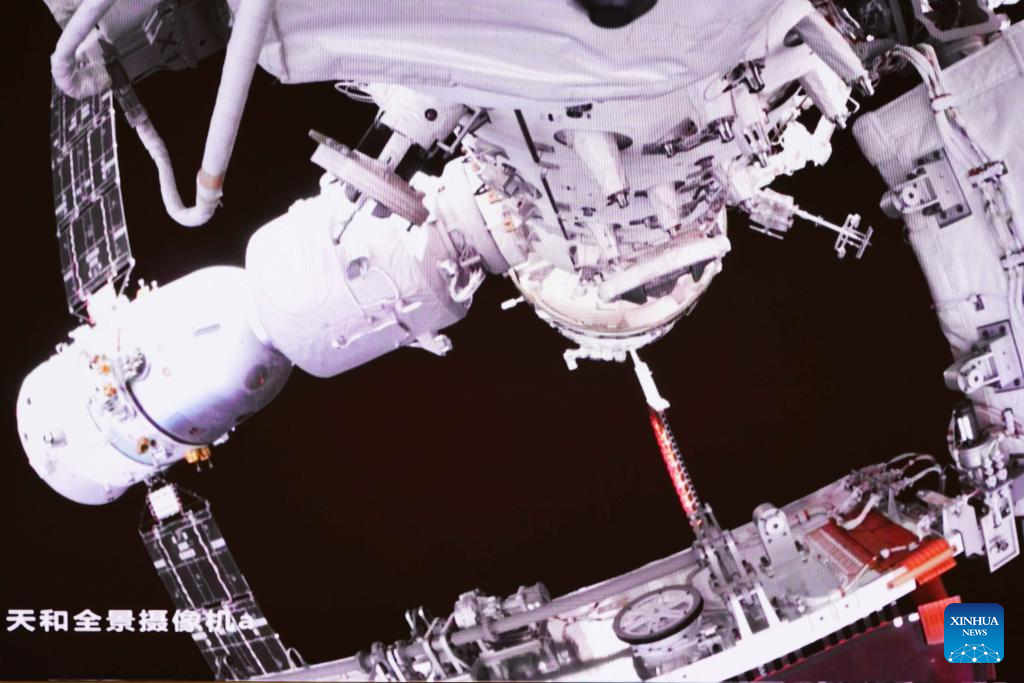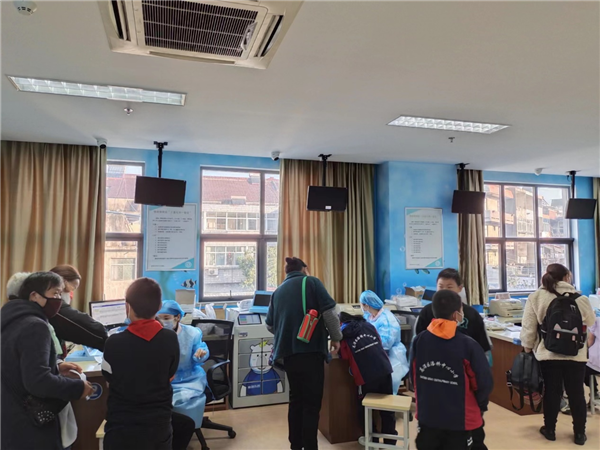
(Photo/Zhong Chongshan)
Jiangsu Province has strengthened efforts to ensure medical supplies at grassroots health facilities in the fight against COVID-19.
Wang Junxiang, a 58-year-old doctor at Fangbian Village in Jintan District, Changzhou City, said the district's health bureau recently distributed antipyretics and a pulse oximeter to the village-level health station.
The National Health Commission required the monitoring of oxygen saturation level in treating vulnerable groups infected by COVID-19 and suggested that there should be at least 20 pulse oximeters for a community health center or a town-level hospital and two such devices at a village-level health station.
More than 5,800 pulse oximeters have been put into use in Wuzhong District of Suzhou City, enough to provide services for more than 40,000 people. The city's Gusu District also provided 20 such devices to each team of family doctors. Some health centers have been equipped with CT scanners.
Health authorities at all levels are paying close attention to developments associated with fever clinics, emergency response capacity, hospitalization and severe cases of COVID-19 at grassroots health facilities. Heads of heath commissions in counties are now leading the management of all types of medical resources in the area. Meanwhile, town-level hospitals are expanding their service capacities to provide timely treatment of patients at higher risk of serious symptoms.
Ma Yuqing, director of Qiqiao Health Center in Nanjing's Gaochun District, said the main difficulties are a shortage of staff and beds and the limited experience in providing treatment. Fortunately, Gaochun District People's Hospital recent sent Li Xiaoshi, head of the hospital's Internal Medicine Department, to support the health center.
Li said the district has organized trainings to help medical workers better understand and respond to COVID-19 cases at different stages and tertiary hospitals also provided clinical pathways to guide the treatment. Among other efforts, teams of experts from district-level hospitals have paired up with health centers to offer clinical suggestions.
The Xuzhou Health Commission has formed 1,457 teams of family doctors to provide services throughout the community and town levels.
Qingjiangpu District in Huaian City designated 4-member teams to meet the needs of key groups such as pregnant women, children, elderly people who live alone, and people with disabilities.
Nantong has opened a 24-hour hotline to answer COVID-19 treatment questions and the city's 1,620 teams of family doctors are prepared to help patients seeking hospital transfer.

